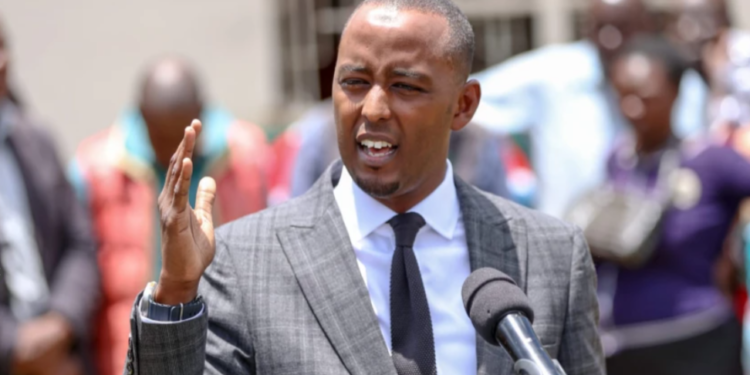President William Ruto, through State House Spokesperson Hussein Mohamed, has initiated a robust debate on the necessity for judicial reforms, reminiscent of the days when rumors of bribery plagued the judiciary during President Mwaki Kibaki’s tenure.
Mohamed, delivering the President’s message, questioned whether Ruto should yield to the judiciary or directly fulfill commitments to the Kenyan people.
“The executive is mandated to deliver to the people after an election. Should the President fulfill commitments to the people and their needs, or should the Executive seek concurrence from the Judiciary to deliver on what the people voted for?” Mohamed posed.
In response to the Law Society of Kenya’s recent advice on constitutionalism, Mohamed emphasized, “The President has consistently championed the rule of law and constitutional principles.” He underscored the President’s adherence to court orders, particularly those linked to the Affordable Housing Program, stating, “This commitment has been evident through his unwavering respect for and compliance with recent court orders.”
While affirming the unacceptability of executive, legislative, and judicial impunity, Mohamed acknowledged, “Corruption, whether within the Judiciary, the Executive or the Legislature, and indeed, among the general public, must not find refuge behind the shield of judicial independence.”
The press release emphasized President Ruto’s constitutional obligations, quoting, “Article 43 of the Constitution obligates the State, led by the President, to provide social and economic rights to Kenyans.” The manifesto, developed in consultation with citizens across all counties, focused on affordable housing, universal health coverage, food production, social security, and education.
Expressing concern over historical impediments, the statement asserted, “Historically, Kenya has been held back by a few corrupt individuals and those with vested interests.” It called for a moment of transformation and a break from the chains of impunity, urging a united front against corruption.
A critical point of contention emerged regarding the role of the Judiciary in combating corruption. Mohamed questioned, “Should individuals investigated by the DCI and the EACC find refuge in courts to circumvent the criminal justice system?” Labelling such actions as judicial impunity rather than independence, the release highlighted a concern for the effectiveness of the justice system.
Citing Article 10 of the Constitution, the statement criticized a recent dismissal of public participation by a judicial official, saying, “Such actions from some judicial officials are signs of judicial tyranny and impunity perpetuated by compromised and corrupt judicial officers.”
The press release concluded with a series of challenging questions, emphasizing the ongoing debate on whether the executive should seek concurrence from the Judiciary to fulfill commitments to the people. As the clash between the Law Society and the State House unfolds, it remains to be seen how this discourse will shape the ongoing conversation on the separation of powers and governmental responsibilities.

















